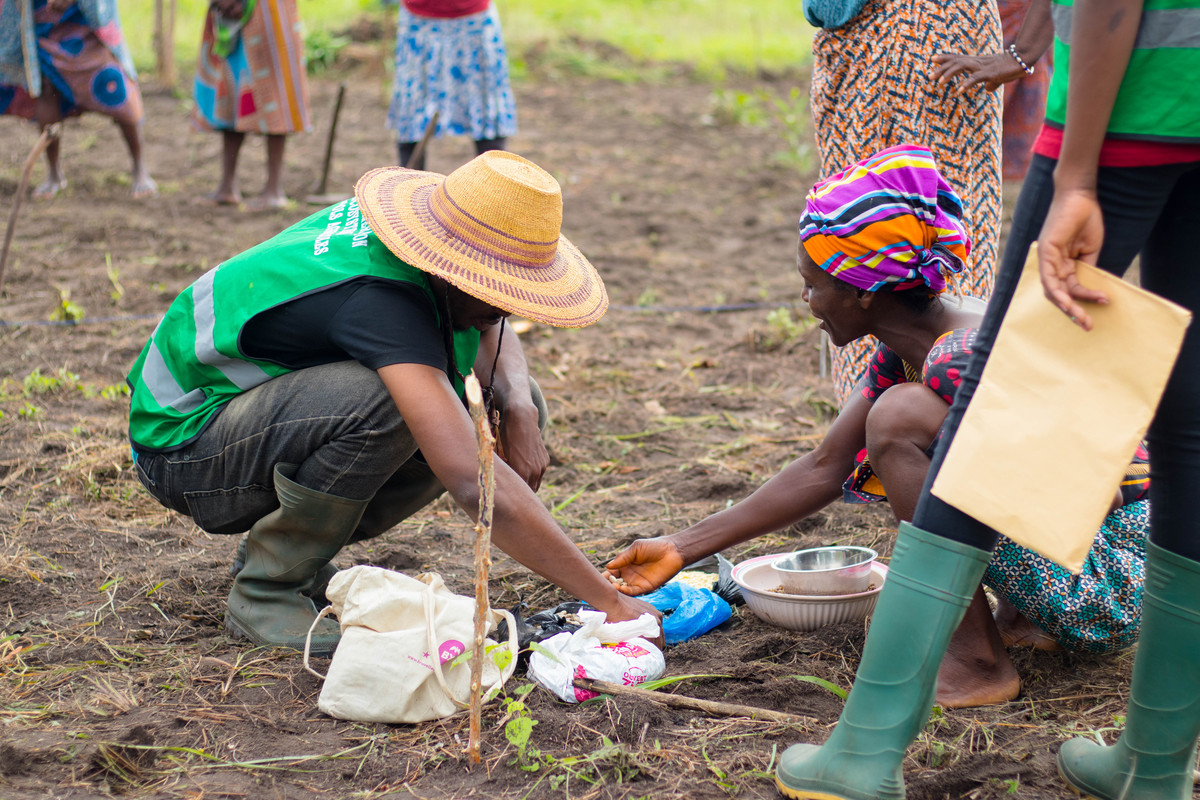The Sahel region of West Africa is at the frontline of climate change, and Keur Ndiol, Senegal, is no exception. Extreme droughts, rising temperatures, and years of unsustainable agricultural practices—like the overuse of chemical fertilizers and pesticides—have left the soil barren and fragile. In a region where over 65% of agricultural land is degraded, the consequences are severe: food insecurity, declining livelihoods, and conflicts between farmers and herders competing for dwindling resources.
But there is hope. Earth Guardians' Soil Regeneration for Agriculture & Pastoralism project is bringing the land back to life. By integrating scientific methods with traditional ecological knowledge, we’re tackling these challenges head-on—restoring soil fertility, improving water retention, and helping farmers adopt sustainable practices that support both the environment and the local economy. This project is about more than just soil; it's about rebuilding the foundation of life in Keur Ndiol.

The Urgency: For decades, the region has relied on chemical fertilizers and pesticides to boost short-term yields. However, these methods have stripped the soil of its natural nutrients, polluted water supplies, and led to a cycle of land exhaustion. Coupled with increasingly severe droughts, rising temperatures, and desertification, the land can no longer support the communities that depend on it. Farmers and herders find themselves competing for access to shrinking plots of usable land, leading to increased tension and conflict. As the land deteriorates, food production plummets, making it harder for families to survive, let alone thrive. This project aims to break that cycle. By replacing harmful practices with regenerative techniques like composting, organic fertilizers, and improved water management, we’re not only restoring the land but building resilience to climate change. Our work will support healthier soil, more productive farms, and a stronger local economy.
Project Objectives: This project is a part of Earth Guardians’ broader efforts to restore ecosystems and uplift communities in the Sahel through regenerative land management and reforestation. The main objectives of the project include:
- Restoring degraded soil across 100 hectares to enhance agricultural productivity and ecosystem health.
- Reducing land-use conflicts between herders and farmers by implementing sustainable grazing practices.
- Improving food security by promoting sustainable agricultural techniques that boost crop yields and resilience.
- Building community resilience through capacity-building programs that empower local farmers, pastoralists, and youth with the knowledge and skills to sustainably manage natural resources.
- Fostering gender equality by actively involving women and marginalized groups in all aspects of the project.
Key Regenerative Activities:
-
Land Mapping and Analysis: Utilizing GIS and remote sensing technology, we will monitor land cover, water resources, and assess soil health. This data-driven approach helps track landscape changes and manage risks related to drought, bushfires, and temperature stress. It also supports our efforts to measure carbon sequestration over time.
-
Soil Health Restoration: The project focuses on restoring soil fertility and biodiversity. We will train 100 local farmers in regenerative agriculture techniques, including crop rotation, biofertilizer production, and organic pest management. This intensive 100-hour program will empower farmers to adopt sustainable land-use practices that improve long-term soil health.
-
Sustainable Pasture Management and Reforestation: To mitigate conflicts over land and reduce overgrazing, we will train 50 livestock breeders in sustainable pasture management. Additionally, 3,000 trees will be planted to help restore the local ecosystem, balance land use, and sequester carbon.
-
Conflict Management Committees: To address the recurring disputes over land access, we will establish conflict management committees. These committees will host monthly meetings to delegate project responsibilities, mediate disputes, and promote collaborative decision-making.
-
Public Awareness and Education: The project will engage over 250 community members annually to raise awareness about the importance of soil biodiversity and sustainable land-use practices. Educational workshops and community discussions will be a key component of this effort.
-
Technical Skills Development: We will train 10 young community members in GIS and remote sensing techniques to monitor land degradation, drought, and wildfire risks. This technical training will help build local capacity for sustainable resource management.
The Bigger Picture: This project is about more than just regenerating soil—it’s about regenerating hope, livelihoods, and communities. By the end of this project, we will have restored 100 hectares of land, trained farmers and herders, and created a blueprint for other regions across the Sahel to follow. Our efforts will not only sequester carbon and combat climate change, but they will also reduce tensions over land use, helping to foster a peaceful, sustainable future.
Why We Need Your Support: Your contribution can be the tipping point that turns this vision into reality. By supporting this project, you’re not just helping to restore soil—you’re helping to transform lives. Your donation will fund training programs, land restoration efforts, and educational outreach that will create a ripple effect of sustainability across the Sahel.
Impact and Outcomes:
- 100 hectares of degraded land restored.
- 100 farmers trained in regenerative agriculture practices.
- 50 livestock breeders empowered with sustainable grazing techniques.
- 3,000 trees planted to restore ecological balance.
- 250 community members educated on sustainable land use and biodiversity.
- 10 young leaders trained in GIS and remote sensing to monitor land health.
This is your opportunity to invest in the future—one that’s greener, more peaceful, and sustainable. Help us make it happen.
Roots of Renewal: Soil Regeneration for Sustainable Agriculture & Pastoralism in Keur Ndiol, Senegal History
-
applied to the Land Regenerators 4 months ago which was rejected






